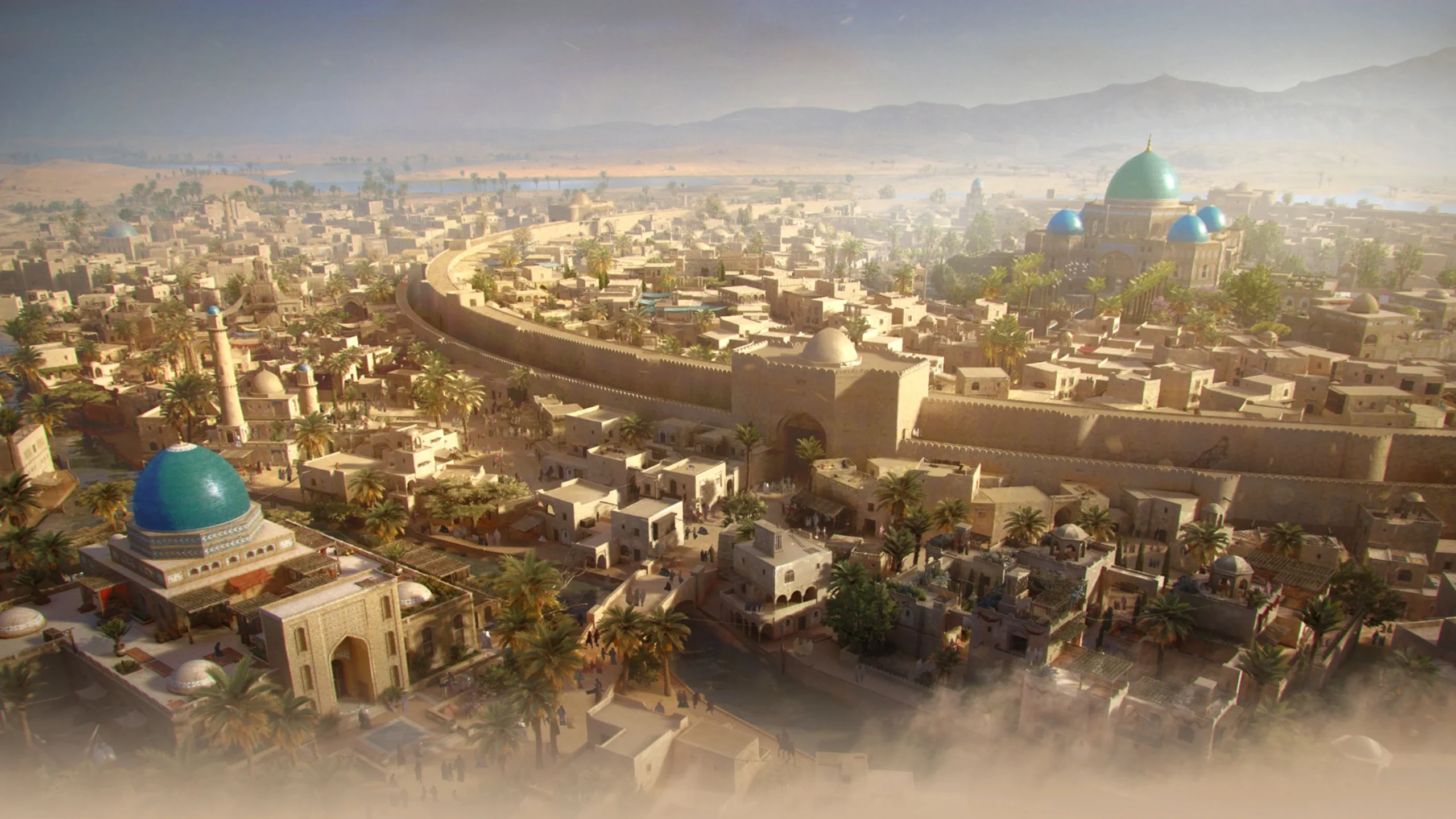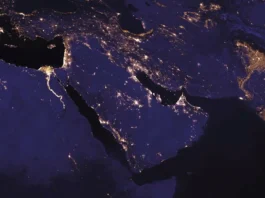Introduction: A Lost Treasure of Knowledge
The Lost Library – imagine a place where scholars from every faith and culture gathered under one roof, where they translated ancient Greek, Persian, and Indian manuscripts into Arabic, and where they made groundbreaking discoveries in mathematics, astronomy, medicine, philosophy, and engineering. This place was the House of Wisdom (Bayt al-Hikma) in Baghdad, one of history’s most advanced intellectual institutions.
The Abbasid Caliphs founded the House of Wisdom during the Islamic Golden Age, turning Baghdad into the world’s center of learning. More than a library, it became a vibrant hub of scientific innovation, debate, and cross-cultural exchange. While much of Europe faced the Dark Ages, Baghdad thrived as a beacon of enlightenment, driven by a civilization that honored knowledge as sacred.
Scholars at the House of Wisdom didn’t simply copy ancient knowledge; they challenged it, improved it, and built upon it. They laid the foundations for algebra, advanced astronomy, optics, and medical practices that influence us even today. This lost treasure of learning shaped the European Renaissance and continues to impact modern science yet many remain unaware of its profound legacy.
Despite its greatness, the House of Wisdom faced a tragic end. Understanding what caused the collapse of this golden age offers vital lessons especially now, as truth, knowledge, and education face new challenges worldwide.
In this article, we will explore the rise, achievements, destruction, and untold legacy of The Lost Library. Join me on this journey to uncover one of history’s greatest intellectual treasures and one of its most heartbreaking losses.

1. The Birth of the House of Wisdom
The House of Wisdom, often referred to today as The Lost Library, was established in Baghdad, the vibrant capital of the Abbasid Caliphate. Although Caliph Harun al-Rashid (786–809 CE) laid its foundations, the institution truly flourished under his son, Caliph Al-Ma’mun (813–833 CE). Al-Ma’mun envisioned the House of Wisdom as more than a simple library it was a center for translation, research, and intellectual exchange that attracted scholars from all over the world.
🔹Why Did The Lost Library Rise?
- A Groundbreaking Translation Movement: One of the core missions of The Lost Library was to gather knowledge from across cultures. Under Al-Ma’mun’s guidance, scholars translated thousands of texts from ancient Greek, Persian, Sanskrit, and Syriac into Arabic. These works included masterpieces from Aristotle, Plato, Ptolemy, and Hippocrates, preserving centuries of wisdom that might have otherwise been lost. This translation movement not only safeguarded knowledge but also made it accessible to new generations of thinkers.
- Support for Scientific Advancements: The Lost Library didn’t just collect books; it fostered discovery. Caliph Al-Ma’mun personally sponsored astronomers who built observatories and mapped the stars. Physicians in the House of Wisdom advanced medical understanding by studying anatomy and compiling medical encyclopedias. Mathematicians refined algebra and introduced concepts that would later influence Renaissance Europe. This focus on practical and theoretical science made The Lost Library a beacon of innovation.
- A Melting Pot of Cultures and Religions: What set it apart was its embrace of diversity. Muslim scholars worked alongside Christians, Jews, and Zoroastrians, creating an atmosphere of respect and intellectual curiosity. This multicultural environment encouraged the cross-pollination of ideas and philosophies, enriching the collective knowledge pool. It also helped unite different communities around a shared pursuit of learning, highlighting the inclusive spirit of The Lost Library.

🔗 The Abbasid Caliphate: A History of Power and Knowledge
2. What Was Studied at the House of Wisdom?
The Lost Library was much more than a collection of books it served as a vibrant intellectual hub where scholars didn’t just preserve knowledge but actively expanded it. The House of Wisdom was a center for research, debate, and innovation, where thinkers conducted experiments, wrote influential texts, and challenged existing ideas to push the boundaries of human understanding.
🔹Key Fields of Study & Their Lasting Contributions:
🔹 Mathematics & Algebra
One of the most celebrated figures associated with The Lost Library is Muhammad ibn Musa al-Khwarizmi (c. 780–850 CE), often hailed as the father of algebra. His groundbreaking works introduced systematic methods for solving equations, which not only shaped the field of algebra but also gave rise to the concept of the algorithm a term derived from the Latinized form of his name. This innovation laid the intellectual foundation for modern computer science.
In addition, the House of Wisdom played a crucial role in popularizing the Arabic numeral system, which was originally borrowed from Indian mathematicians. This numeric system, including the concept of zero, revolutionized mathematics and enabled the complex calculations required in commerce, astronomy, and engineering forming the basis of the arithmetic we use today.
🔹 Astronomy
Scholars at The Lost Library meticulously studied the stars and planets, refining the Ptolemaic geocentric model and making precise astronomical observations. They built some of the earliest observatories, compiled star catalogs, and developed instruments like the astrolabe, which sailors and scientists used to navigate and measure celestial movements. Their work not only advanced navigation but also deepened humanity’s understanding of the universe.
🔹 Medicine and Pharmacology
The medical knowledge cultivated at The Lost Library was equally profound. Physicians like Al-Razi (Rhazes) and Ibn Sina (Avicenna) compiled extensive medical encyclopedias that integrated Greek, Persian, and Indian traditions with their own observations. These texts covered anatomy, diseases, treatments, and surgical techniques and remained authoritative references in both the Islamic world and Europe for centuries. The House of Wisdom also contributed to pharmacology by documenting medicinal plants and remedies.
🔹 Philosophy and Theology
The House of Wisdom nurtured the study of philosophy and theology, where scholars translated and commented on works of Aristotle, Plato, and other Greek philosophers. This intellectual exchange sparked debates about metaphysics, ethics, and the nature of existence, often blending with Islamic thought to produce rich philosophical traditions that influenced later medieval scholars.
🔗 Golden Age of Islamic Science Contributions: How Muslim Scholars Revolutionized Knowledge

🔗 Who Was Al-Khwarizmi? His Contributions to Mathematics
3. The Fall of the House of Wisdom: A Tragic Loss
For more than four centuries, the House of Wisdom remained the beating heart of intellectual progress, preserving and generating knowledge that shaped civilizations far beyond Baghdad. Yet, this beacon of enlightenment met a devastating end in 1258, when the Mongol forces, led by Hulagu Khan, stormed the city.
🔹How Was It Destroyed?
The Mongol invasion brought unprecedented destruction. Soldiers ransacked Baghdad, targeting its cultural and scientific treasures with brutal efficiency. The House of Wisdom, along with countless other libraries, was set ablaze. Thousands of irreplaceable manuscripts texts that had preserved centuries of human thought were either burned or thrown into the Tigris River.
An enduring legend tells how the river’s waters darkened with ink from the countless destroyed books, symbolizing the immense intellectual loss suffered by humanity. This catastrophic event didn’t just erase shelves of knowledge; it extinguished the vibrant scholarly community. Thousands of scholars lost their lives, and Baghdad’s sophisticated infrastructure crumbled under the assault.
The fall of the House of Wisdom marked not only the destruction of a physical place but also a profound setback for the global pursuit of knowledge. The ripple effects of this loss delayed scientific and cultural advancements in the Islamic world and beyond for generations.

🔗 The Siege of Baghdad and the Fall of the House of Wisdom
4. The Lasting Impact of the House of Wisdom
Although the House of Wisdom was destroyed, its influence continues to resonate through history, shaping the course of knowledge and culture for centuries.
🔹 The Preservation of Knowledge
Thanks to the dedicated efforts of scholars who copied and shared important manuscripts, many classical works survived the destruction. These texts traveled far beyond Baghdad, reaching intellectual centers in Al-Andalus (Muslim Spain), Persia, and Egypt. Through this transmission, invaluable Greek, Persian, and Indian knowledge found new life in different parts of the world.
This preservation played a crucial role in sparking the European Renaissance, as scholars in Europe rediscovered these ancient works through Arabic translations and commentaries. The ideas and discoveries nurtured in the House of Wisdom became foundational for the scientific revolution that transformed the Western world.
Beyond preservation, the House of Wisdom also inspired a tradition of inquiry and scholarship that influenced Islamic civilization for centuries. Its spirit of multicultural collaboration and intellectual curiosity set a powerful example for future generations of scholars around the globe.

🔗 How Islamic Knowledge Influenced the European Renaissance
Conclusion: Can We Rebuild a Modern House of Wisdom?
The House of Wisdom was one of humanity’s greatest intellectual achievements. Its destruction was a great loss, but its legacy still shapes science, culture, and learning worldwide.
Today, we face major challenges in AI, space exploration, and medicine. The idea of a modern House of Wisdom feels more important than ever. Imagine a global center where scholars from many nations and backgrounds collaborate. They would share ideas and push the limits of human knowledge just like in Baghdad centuries ago.
Rebuilding such a place needs advanced technology and resources. It also demands a commitment to open dialogue, curiosity, and respect. The House of Wisdom teaches us that knowledge grows best through diversity and cooperation. Through learning, humanity can overcome its toughest challenges.
What do you think? Could a new House of Wisdom arise today to inspire innovation and unity? Share your thoughts in the comments below we’d love to hear from you!




